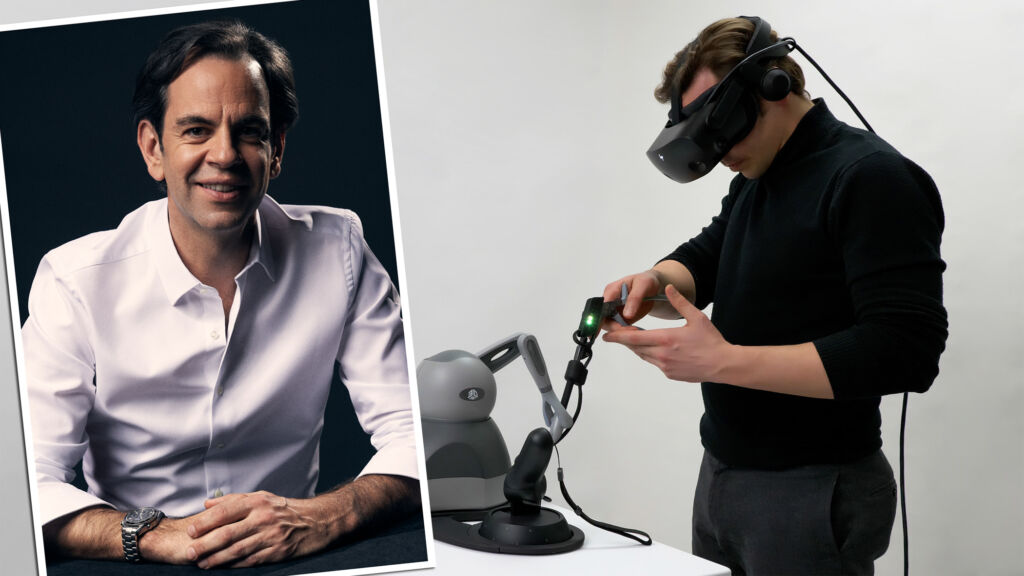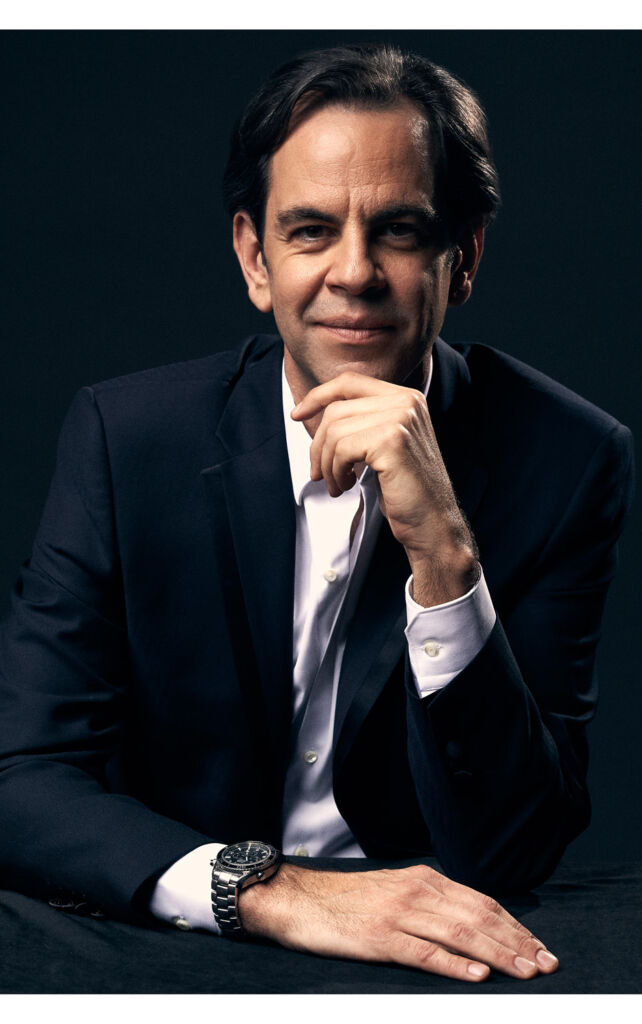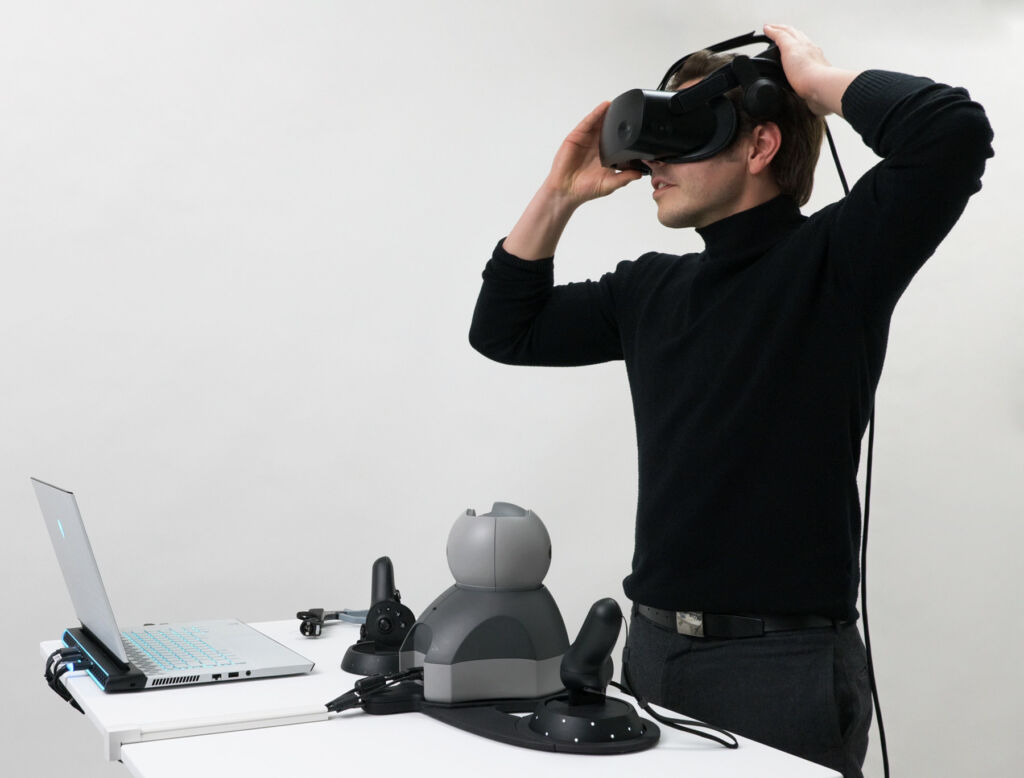

Ong Chin Huat talks to Nicolas Mignan, a co-founder of VirtualiSurg, to learn more about how the innovative virtual reality system is being used to change the face of the medical training industry.
As a leading training platform that combines virtual reality and Haptic technologies to enhance healthcare capabilities, VirtualiSurg is a training platform which stimulates real-life medical training scenarios and Haptic technologies to replicate the physical sensations of handling actual surgical instruments.


Based on forging episodic memories through “learning by doing” in virtual space, this methodology accelerates skill adoption by coding the experienced repetitive gestures into the brain, similar to how music is learned.
CEO Nicolas Mignan speaks exclusively to Luxurious Magazine about why he created VirtualSurg and the benefits of training medical students in virtual reality.
Luxurious Magazine: Why did you create VirtualiSurg, and how is it transforming medical education?
Nicolas Mignan: I have always been passionate about education and privileged to be able to innovate the ways of learning for the new generation in my various roles. Working in prestigious medical faculties of world-class French universities opened my eyes to the world of surgical training. To see traditional, centuries-old training methods still being front and centre of medical training was truly surprising.
It was obvious to me that we urgently needed to modernise how our young surgeons are trained and move away from cadavers and anatomical subjects. I saw the potential of training in virtual reality, which allows unlimited training and unprecedented access to knowledge exchange across the globe, overcoming challenging physical limitations from geography to anatomical complexities.
There are proven benefits of repeat practice when acquiring new technical skills. As evidenced by much research, many people support such a collaborative simulation tool as a solution to technical mastery.
This innovation would become the genesis of VirtualiSurg. So, one evening in 2017, armed with only a pen and paper, I wrote a vision for a new era of healthcare training that leverages the power of immersive technologies to boost medical proficiency like never before.
Today, VirtualiSurg is making a real impact across four continents, offering greater access to world-class medical training through our technology. This boosts proficiency within healthcare systems and improves access to quality patient care as a result.


LM: Tell us about VirtualiSurg’s ‘world-first’ latest products and the specific skill gaps you are trying to bridge.
Nicolas: Many young surgeons, who only train with traditional anatomical subjects, are unable to familiarise themselves with certain ‘live’ complications (such as bleeding complications), which can occur mid-procedure.
One such procedure is the Anterior Lumbar Interbody Fusion (ALIF) spinal surgery technique, which is a source of significant stress for young surgeons due to the lack of access to training. ALIF’s complex nature makes teaching challenging and requires lengthy practice to be mastered.
With this recognised knowledge gap among the community of spinal surgeons following a nationwide survey conducted in France, VirtualiSurg joined medical technology leader Johnson & Johnson MedTech through Ethicon Inc., and three respected surgeons, Prof. Jérôme Allain, Prof. Nicolas Lonjon and Dr Jean Meyblum to develop the world’s first immersive training program for the ALIF procedure, pioneering how surgeons learn, practice and master this important technique.
The first of its kind, the new XR ALIF recreates the real-life conditions of an operating theatre using patented Haptic technology to create a multi-sensorial experience.
The long-anticipated simulation is already being used by surgeons in the Neurosurgery department of Montpellier’s University Hospital to improve knowledge transmission and surgical training. Read more from one of the Hospital practicians here.
LM: Where is immersive tech in education heading in the next decade?
Nicolas: We are already witnessing the capacity of immersive technologies to transcend many boundaries of physical limitations – and not just what the eyes can see. Immersive technologies, such as virtual reality (VR), are driving innovation across many industrial sectors, and they will continue to evolve in the years to come.
In education, VR is set to become the cornerstone of how we teach and upskill future generations of learners. With its powerful reach and technological advantages, knowledge and technical skills can be seamlessly exchanged across the planet, with quality and safety considerations becoming paramount.
Virtual surgery will become an integral training tool for the medical world, opening up the capacity for thousands of students to be trained at once via live surgical procedures streamed from an operating room using VR.
Once complete, they will be able to replay and/or practise what they have just learned from anywhere in the world in fully immersive 3D while enjoying personalised evaluation and faster progress.
Such capabilities can revolutionise training to boost access to quality healthcare across the world.
LM: Explain how training in virtual reality produces real-life results. What are the benefits of this immersive technology as compared to traditional approaches?
Nicolas: Anatomical subjects, which are used in traditional surgical training, are physically limiting, entirely unsustainable, highly costly and subject to ethical concerns.
VirtualiSurg’s VR platform for surgical training fundamentally overcomes these challenges with the capacity to allow thousands of surgeons worldwide to connect in real-time, to learn new techniques simultaneously, using the most advanced technology available at a markedly lower cost than with traditional methods.
The proven advantages of training in VR include upskilling significantly faster, gaining confidence and feeling emotionally connected to the content learned. You can absolutely master complex technical and essential soft skills in VR and gain progress in real life – this is proven in several scientific publications.
A testament to the reach of our innovation can be seen in how VirtualiSurg’s VR training program supported the Georges Pompidou European Hospital in Paris in drastically improving skill proficiency across its nursing team, which boosted patient care at a large scale.
Personalised to each trainee’s needs, VirtualiSurg’s immersive training experience offered a positive experience to the nursing team, who gained the confidence to apply their skills in otherwise stressful situations. Two Healthcare Professionals shared their positive experience here.
LM: What is the bigger impact you want to achieve in healthcare and/or beyond?
Nicolas: In less developed countries, optimal surgical training is challenged by a lack of access to modern technology. Similarly, high-quality care is inaccessible for many patients worldwide. VirtualiSurg aims to make quality healthcare accessible without barriers and herald a new era in which the postcode lottery no longer determines patient outcomes.
We are working hard to overcome such inequalities by accelerating mastery and knowledge exchange for the new generation of healthcare providers in the name of innovation.
By transcending the many physical limitations and furthering the potential and scale of medical mastery, I hope we can democratise clinical know-how for healthcare professionals, allowing all patients across the world to benefit from high levels of care.
LM: What advice would you give those keen to invest in immersive technologies?
Nicolas: The healthcare segment of the global metaverse market alone is exponentially growing, with InsightAce Analytic projecting its value to reach US$71.6 billion by 2030.
In terms of investment value, I would say that we are seeing votes of confidence from prominent tech players such as Apple’s new Vision Pro, META’s latest partnership with LG, and Samsung’s anticipated VR headset launch, among others.
These are significant moves within the industry which point to the promising future of immersive technologies.
On a personal level, VirtualiSurg would make an excellent investment for healthcare professionals looking for modern training solutions – as discussed in our conversation – with invaluable knowledge exchange and innovative possibilities, accessible by the simplest set-up of a VR headset, controllers and Wi-Fi connection.
If you would like to learn more about VirtualSurg, Please visit www.virtualisurg.com.
